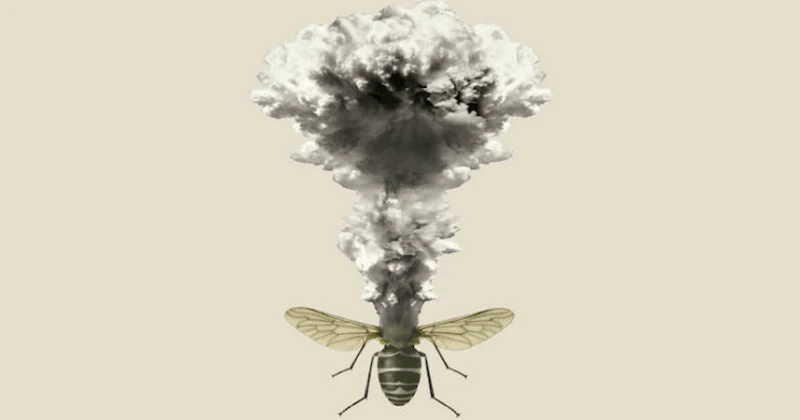Bugpocalypse? New research challenges widely publicized claims of impending catastrophic insect declines
Bugpocalypse? New research challenges widely publicized claims of impending catastrophic insect declines


Drastic declines in insect biomass, abundance, and diversity reported in the literature have raised concerns among scientists and the public. If extrapolated across Earth, biomass losses of ~25% per decade project a potential catastrophe developing unnoticed under our noses.
The phrase “insect Armageddon” has captured the collective attention …. Yet, insects are critically understudied. For example, the BioTIME database—a compilation of biodiversity time series—contains records for 22% of known bird species but only 3% of arthropods (the phylum that includes insects and spiders).
…
In what is the largest and most complete meta-analysis to date, van Klink et al. revealed substantial variation—surges and declines—in [insect] abundance and biomass trends. Similar to what is found across other taxa, the meta-analysis in the new study detected no net directional trend among 166 studies of 1676 geographical sites in 41 countries. Yet, van Klink et al. found that terrestrial insects declined in abundance by 9% per decade on average, whereas freshwater insects increased by 15%.
…
The temptation to draw overly simple and sensational conclusions …. has the grave risk of undermining trust in science and can lead to denialism, fatigue, and apathy. Embracing nuance allows us to balance accurate reporting of worrying losses with hopeful examples of wins.
Read the original post

 | Videos | More... |

Video: Nuclear energy will destroy us? Global warming is an existential threat? Chemicals are massacring bees? Donate to the Green Industrial Complex!
 | Bees & Pollinators | More... |

GLP podcast: Science journalism is a mess. Here’s how to fix it

Mosquito massacre: Can we safely tackle malaria with a CRISPR gene drive?

Are we facing an ‘Insect Apocalypse’ caused by ‘intensive, industrial’ farming and agricultural chemicals? The media say yes; Science says ‘no’
 | Infographics | More... |

Infographic: Global regulatory and health research agencies on whether glyphosate causes cancer
 | GMO FAQs | More... |

Why is there controversy over GMO foods but not GMO drugs?

How are GMOs labeled around the world?

How does genetic engineering differ from conventional breeding?
 | GLP Profiles | More... |

Alex Jones: Right-wing conspiracy theorist stokes fear of GMOs, pesticides to sell ‘health supplements’




 California, Washington, Oregon forge immunization alliance to safeguard vaccine access against federal undermining
California, Washington, Oregon forge immunization alliance to safeguard vaccine access against federal undermining Fighting deforestation with CO2: Biotechnology breakthrough creates sustainable palm oil alternative for cosmetics
Fighting deforestation with CO2: Biotechnology breakthrough creates sustainable palm oil alternative for cosmetics Trust issues: What happens when therapists use ChatGPT?
Trust issues: What happens when therapists use ChatGPT? Viewpoint — Fact checking MAHA mythmakers: How wellness influencers and RFK, Jr. undermine American science and health
Viewpoint — Fact checking MAHA mythmakers: How wellness influencers and RFK, Jr. undermine American science and health 30-year-old tomato line shows genetic resistance to devastating virus
30-year-old tomato line shows genetic resistance to devastating virus Viewpoint: Video — Big Solar is gobbling up productive agricultural land and hurting farmers yet providing little energy or sustainabilty gains
Viewpoint: Video — Big Solar is gobbling up productive agricultural land and hurting farmers yet providing little energy or sustainabilty gains The free-range chicken dilemma: Better for birds, but with substantial costs
The free-range chicken dilemma: Better for birds, but with substantial costs ‘You have to treat the brain first’:Rethinking chronic pain with Sanjay Gupta
‘You have to treat the brain first’:Rethinking chronic pain with Sanjay Gupta
